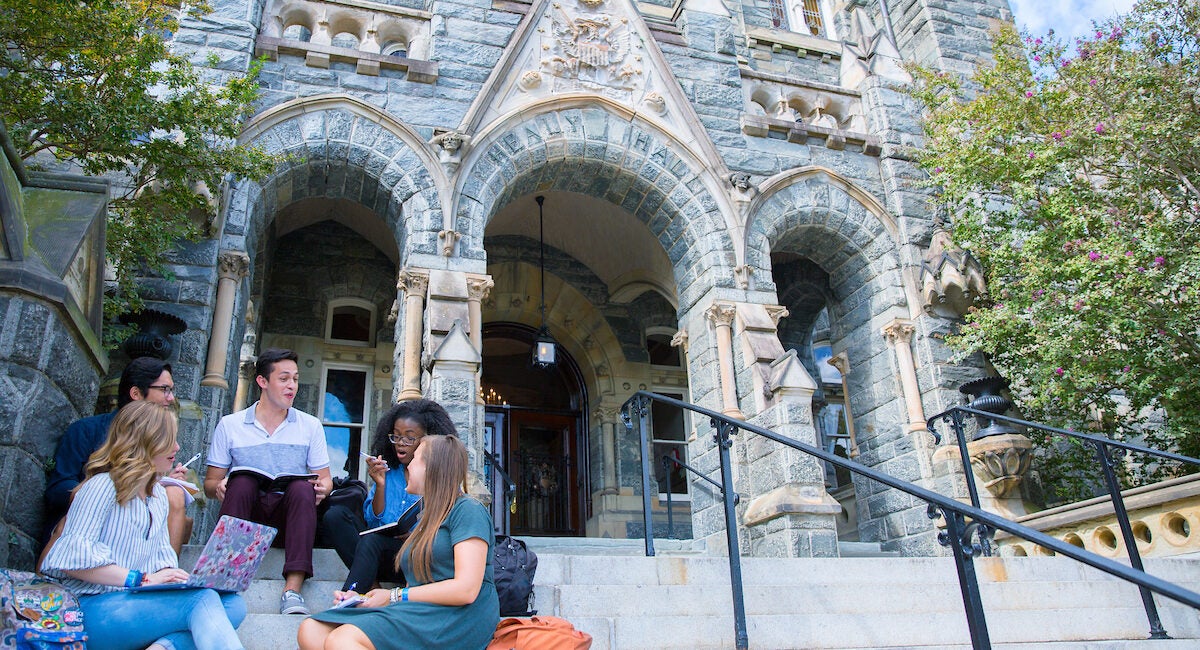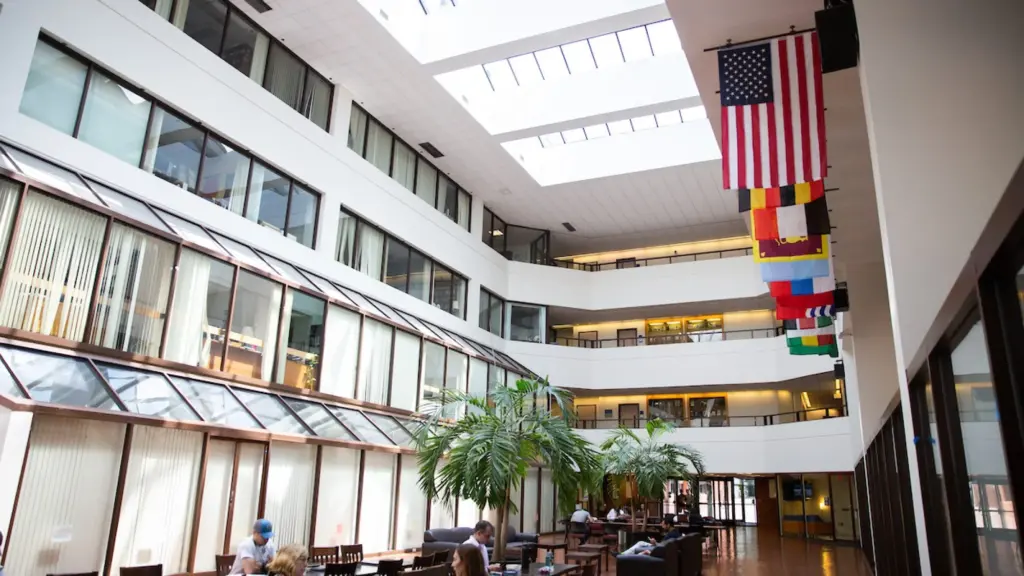Georgetown Doctoral Student Jackson Wolf on Summer Job Teaching Neurodivergent Students Reading Skills
This is part two of four in the Graduate School’s summer series, which chronicles what Grad Hoyas are up to near and far this summer. Follow along on grad.georgetown.edu and our social media channels.
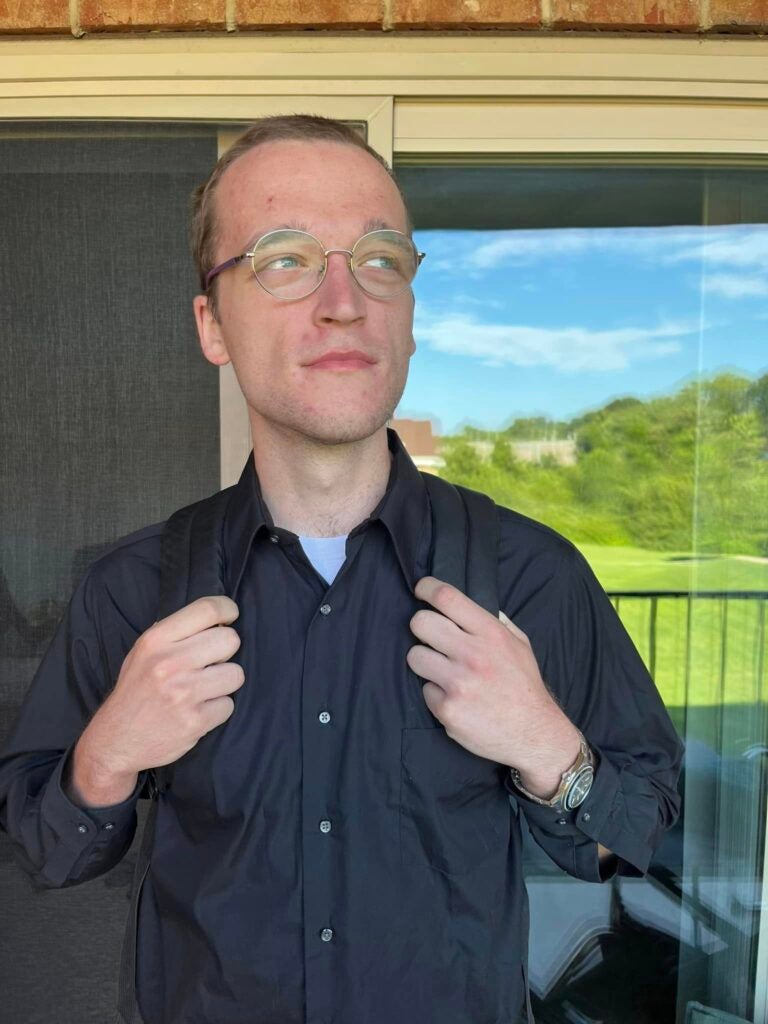
Jackson Wolf
Jackson Wolf thought that he wanted to work in the medical field. However, after doing poorly in a basic science class in high school, he knew he needed to change course. He decided to explore his passion for languages.
Since then, Wolf has earned three degrees – a double B.A. in linguistics and French language and literature and an M.A. in linguistics – and he’s now on his fourth as a doctoral student in the theoretical linguistics program at Georgetown.
“I have been in love with linguistics since I began [pursuing it], and knew I wanted to be involved with teaching,” Wolf said.
His interest in teaching led him to a summer opportunity at Lindamood-Bell Learning Center in Fairfax, Virginia, as a reading consultant helping students from second grade to college catch up to their peers.
Explore Wolf’s summer experience supporting young students’ learning, his approach to academic life as a doctoral student and the advice he’d give to those interested in linguistics as a career.
Summer Reading Consultant
Wolf moved from Michigan to the DC area for his doctoral program and settled in Northern Virginia. As a full-time student, he began searching in the spring for summer opportunities to fill his time between classes. Wolf knew he’d found a gold mine when he came across the Lindamood-Bell Reading Center, which serves children who have dyslexia and other neurodivergent tendencies to develop reading comprehension skills.
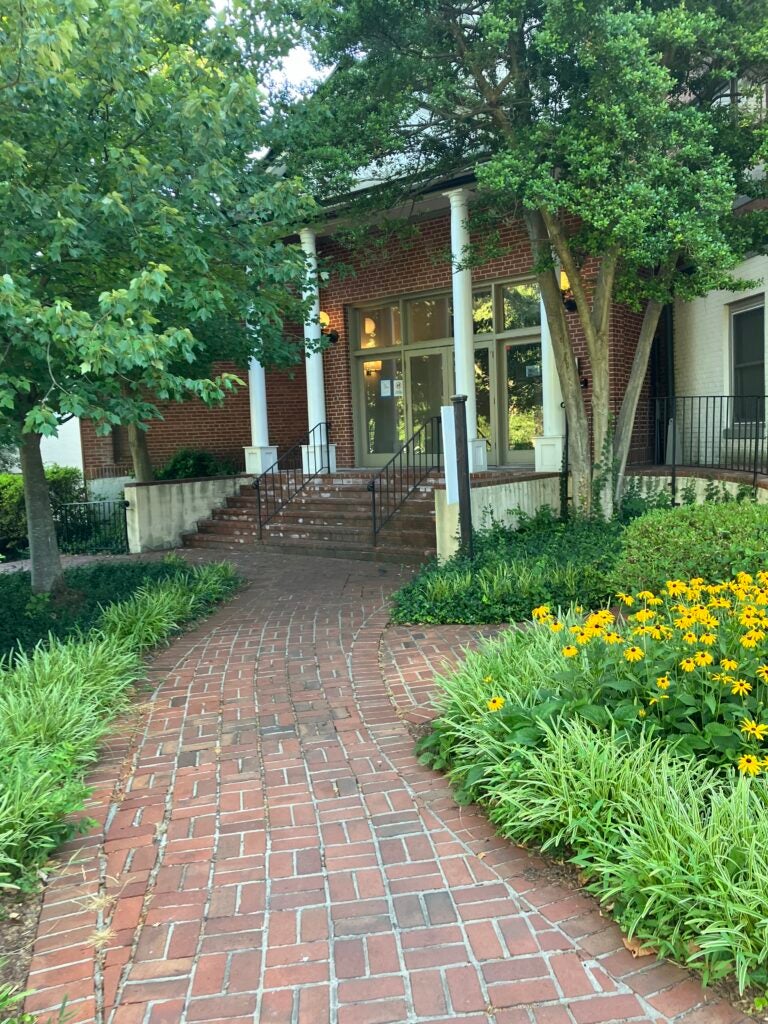
Entrance to Lindamood-Bell Learning Center
“I thought this job would help me live my passion,” said Wolf. “It’s easy for those of us who easily comprehend language to take reading for granted.”
Wolf served kids in the second grade to improve their language skills, which, he noted, takes a lot of patience and empathy. He worked with a variety of students between six to 10 weeks at a time, designing lessons specifically to meet the individual student’s learning needs. From imagery-based practice, to auditory vocalizations, Wolf said the overall goal was to “build independent concept imagery within kids and help them be better media-consuming citizens.”
“I worked with two types of students,” Wolf noted. “There were students who either fell into the dyslexic or hyperlexic category. Hyperlexic meaning they have a good vocabulary, but their brain gets ahead of their ability to comprehend it.”
Hired along with six other seasonal reading consultants, Wolf said that during the course of his work, he learned two important lessons:
“People on the autism spectrum are fascinating people: they tend to be shunned, but I get to see everything else they can do as I take the time to work one-on-one with them. Second, I am challenged with addressing the consequences of changes to the English language, like vowel shifts, and how confusing it is for those who are neurodivergent.”
Wolf’s work this summer has reinforced the notion that he’s on the right path with his studies. In fact, one of his students recently graduated and after eight weeks of studying, they moved from the 37th to 85th percentile in reading comprehension – which is the equivalent of five years of public school in two months.
“It has allowed me to see there’s more than one way to apply what I’m learning,” he said.
Advice to Others
Wolf admits that he still has a lot to learn. This fall, he’s excited to be taking a socio-phonetics course, centered on the sound properties of words and how people think about others based on how they pronounce certain words.
As a native of Michigan, he is part of an American minority that has separate pronunciations for ‘cot’ and ‘caught’ – unlike most of the U.S. that pronounces them the same – which in linguistics is creatively called the ‘cot-caught merger.’ He also noted that this type of sound learning is his favorite given that everyone knows this process and can relate to it. Plus, it’s entertaining, he said.
Wolf’s advice for anyone who is interested in linguistics is simple.
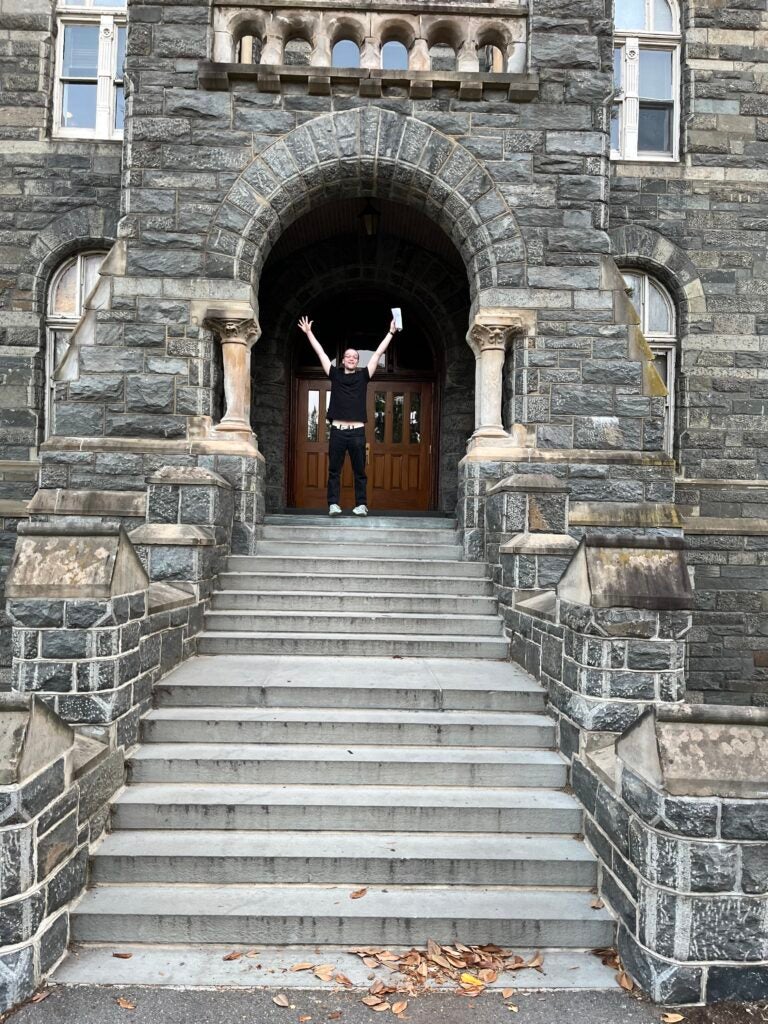
Wolf jumps in excitement in front of the main entrance to Healy Hall at Georgetown
“Be kind and forgiving to yourself as you’re getting used to doing new things.” It can be easy to feel like an imposter at times, Wolf notes, but you should take the time to enjoy learning and be nice to yourself.
“The faculty in the Department of Linguistics at Georgetown are so passionate!” says Wolf. “It isn’t just a program, but a fully-fledged department, and students are willing to share what they know and spend time with you.”
Wolf also notes that the courses he’s taken within the doctoral program are often interdisciplinary. In the spring semester, he took a phonetics course that not only had him learning about sounds of world languages but also human anatomy. Particularly, how the tongue and inner-workings of the ear respond to language-learning.
“As a phonologist, you need to account for changes in the sound of words, and the students I worked with this summer have to be more intentional in thinking about these things.”
Wolf hopes to one day teach introductory phonetics or phonology courses at the university level in order to open up the world of languages to future students and send them out better than when they arrived in his classroom.
Connect with Jackson Wolf on LinkedIn.
